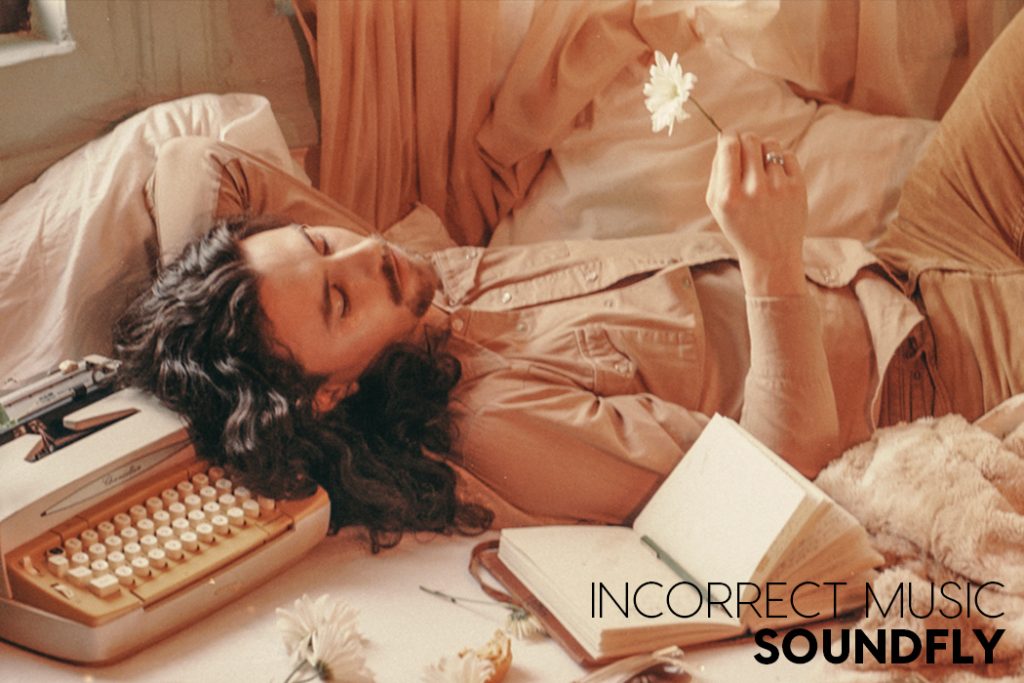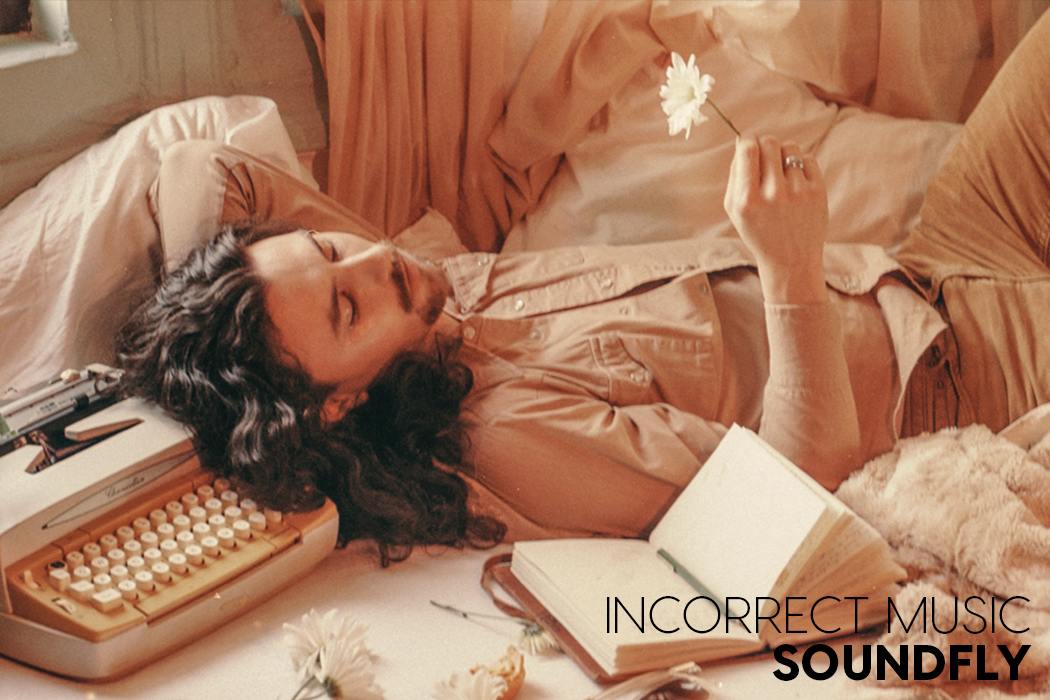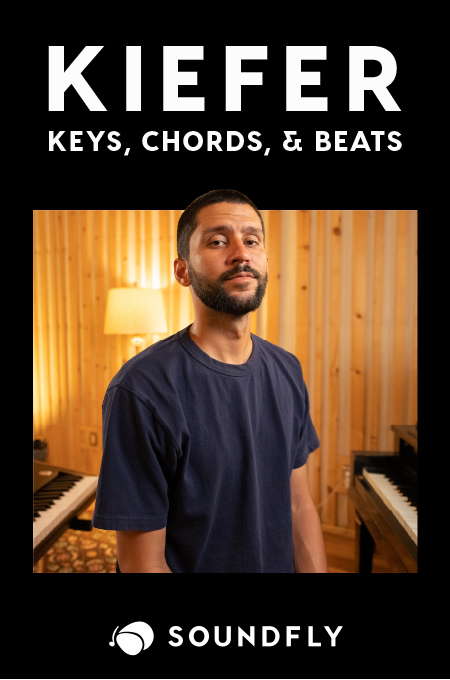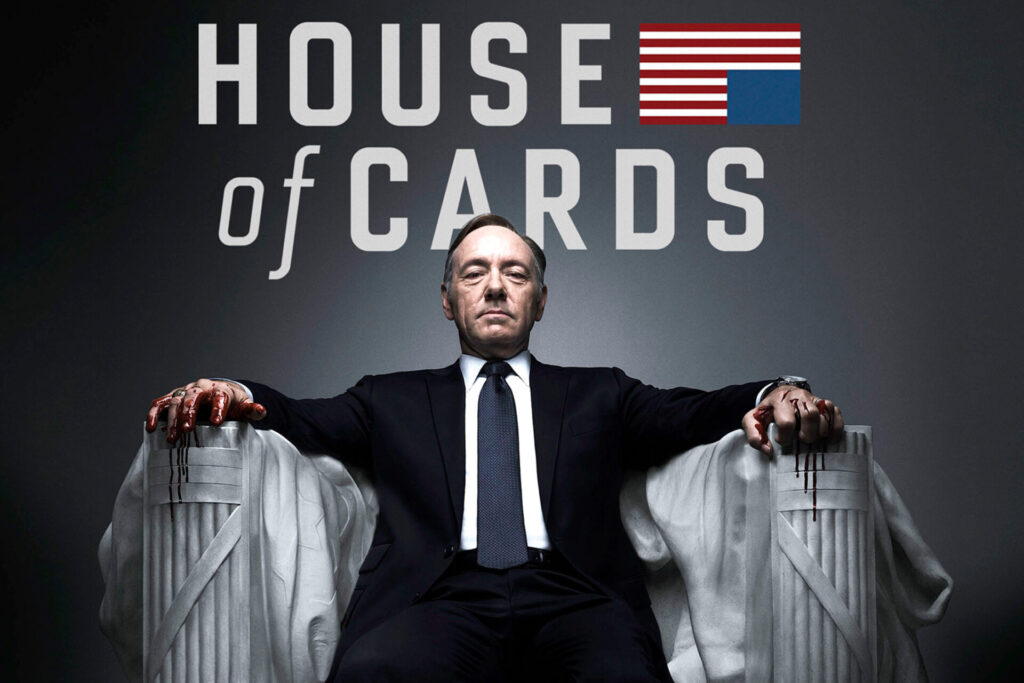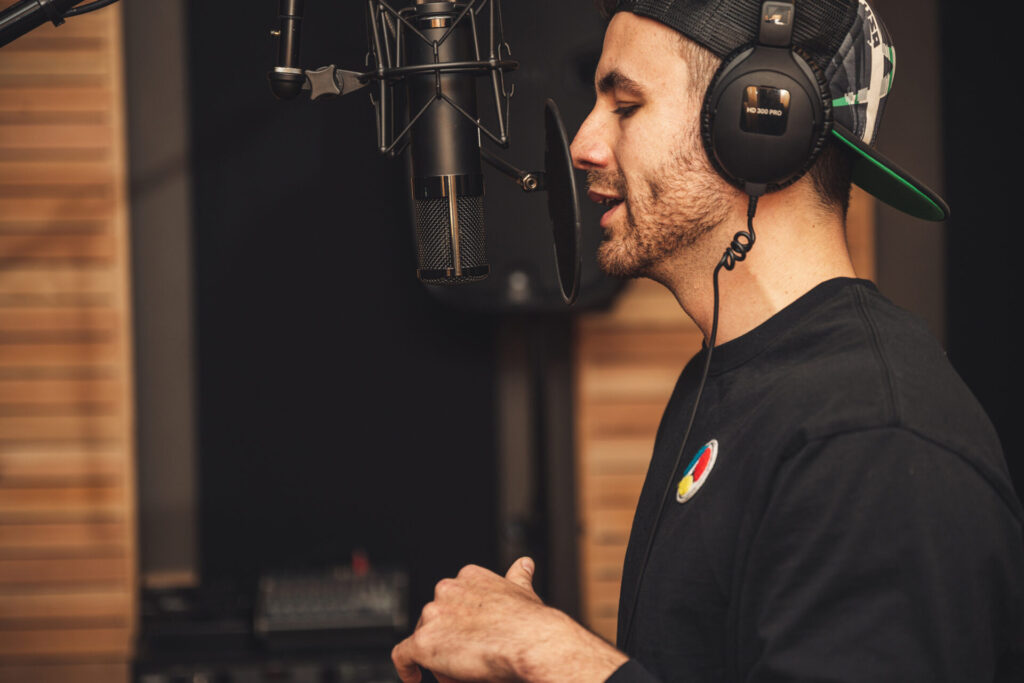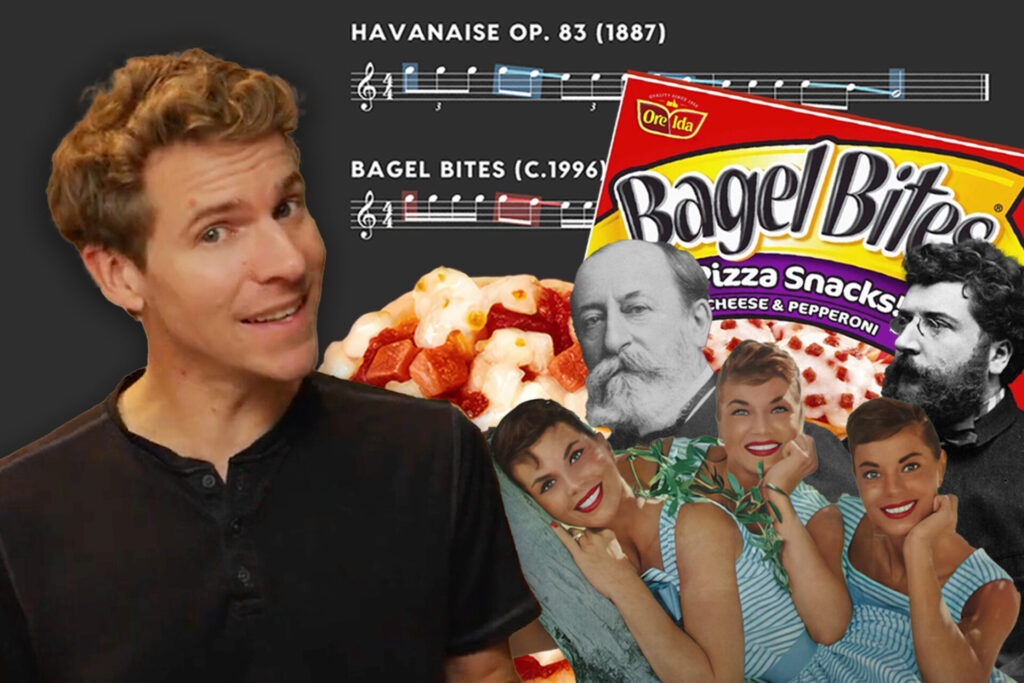Welcome back to Soundfly’s weekly interview series, Incorrect Music, curated by guitarist, singer, and composer Lora-Faye Åshuvud (of the band Arthur Moon). In this series, we present intimate conversations with artists who are striving to push the boundaries of their process and craft.
New York’s Wilder Daze released his debut album, Golden Hour, this fall: a bright, narrative journey through the pop idioms of the last 50 years. Still, the artist doesn’t shy away from the organic in his process, which starts with an electronic beat in Ableton and then eventually moves to Logic, where he overdubs live guitar and vocal track: “I learned I’m drawn to one-take vocals,” he says, “which are uncommon in pop.”
Wilder Daze’s new album, Golden Hour, is out now.
– Lora-Faye Åshuvud
Interview by Jessica Hackett
You just released your debut album, Golden Hour. What can you tell me about the experience of writing and recording this album?
When I wrote the first song for the album, the single “Blush.” I felt like I was finally figuring out my sound. It came to me all at once, lyrics and melody. I knew I wanted it to sound like modern synth pop coming from retro speakers. A few songs in I realized that I was channeling the emotions that I used to get with the music I was first attracted to: late ’90s and early ’00s pop.
I started every song in Ableton, just making a skeleton of a beat. I’d then transfer everything to Logic to start layering and putting in vocals. The album is all electro and drum-based. My formula was mixing live guitar and raw vocals with synth sound. I learned I’m drawn to one-take vocals, which are uncommon in pop. I recorded some of the album on a Shure SM57, a cheap microphone to record acoustic guitar. It brought out a timbre in my voice that made it sound raw and gritty — and that’s what I wanted. I wanted a blend of organic and electronic. It took a while to find the right sound.
How did you get started as an indie musician?
In 2014, I was playing shows and writing, but I had no idea what to do. I was literally Googling “lost artist” when I found an ad for Lynn Verlayne Studio.
I emailed Lynn. She was looking for musicians to go into artist development. I had never heard of artist development prior to this, but I emailed her anyway. I really was persistent, because I had a feeling about it. The first six months was just writing. She told me to stop booking shows, stop going on social media, just lay low, cut back to basics and write. Come in every day with new songs. She helped me see myself not just as an artist, but as a business.
When I was a kid and dreamed of being in music, I didn’t know that one day I’d have to be not only an artist, but also my own public relations, manager, booking agent, everything. It’s hard. It’s not the most natural thing as an artist to have that mindset.
Where did you begin building your business?
Even before I put out my first single, “Sad by Nature,” I had some fans because I was starting to build up Twitter engagement. I would just tweet every day, lyrics and quotes, from writers that I liked and my own writing. I gained a following with that.
How do you use social media to promote your music?
It’s always changing. In 2014, it was all Twitter, and now Instagram is in the forefront. I’m trying to put more attention there. Honestly, I hate social media. I don’t live that lifestyle. I’m not in the studio every day. I’m not playing shows every night. The reality is: Today I’m going to work. I’m not a natural social media poster, so I have to schedule things. I make lists on my phone of posts to send out through the week, because that’s the only way I will consistently do it. I can’t hate social media completely because it’s a great thing — it’s a lot of noise and BS, but you have to go through it to find what’s real in there.
What’s been the most difficult part about being an indie artist?
Money. About this time last year, I started to fall behind on my studio payments. There was a period where I wasn’t sure the album would ever be finished.
When I’d first started with artist development, my parents supported me a lot. I’m so grateful to them for that. But when they divorced, they had to cut me off. It felt like the millennial struggle — like the first episode of Girls. I’m 24, I’m an artist, and my parents cut me off. I had to get a second job.
I squeezed all my studio sessions into one day a week and worked the other six. I was working doubles every day, 60-70 hours a week. I was so tired in the studio. The only thing that motivated me was this album. Thank God, I still loved it. It was an escape into my dream world when I would listen to it. After six months of that, I was able to catch up. There was a lot of pride in it; I had finally made enough to do it on my own.
You have to spend money to make money. It’s a business. It’s competitive. I had to get over that. You don’t want that to be part of your story. You want to be old school. You want to be known for your talent. Well, it’s starting a business. You can’t start a business without money. You can’t sit around and wait to be discovered.
What kind of advice would you give to someone who’s just starting out?
It all comes down to the songs. If you’re an indie artist and you’ve only written a few songs, the first thing you should do is lock yourself in your room and write a hundred songs. That’s the only way to discover your voice.
You have to be headstrong. You have to know who the fuck you are. There are a lot of insecure people in this world. It only hurts when you don’t know who you are and what you love about your work. You have to take care of yourself, and if you have people who believe in your work while you’re still questioning, keep them close.
What’s next for you?
Marketing and press. Today, my producer and I worked out the body of our email blasts, and now I’ve got to be sending emails every morning. I’m writing bloggers, requesting reviews, trying to book interviews. We found a database of Spotify playlist creators, and I’m trying that route to get on to some playlists. I want an indie hit, and Spotify is where it’s at.
I have shows booked for the rest of the year. We’re filming the next show at Rockwood [in NYC] and putting feelers out for booking agents. The next months are about getting set up for a tour. There’s a few ways that could go — either booking myself or hiring a booking agent — and I have to research and budget my options. Until then, it’s just promo and shows.
I’m also really enjoying writing the next album. I’m planning to record it at the top of next year — I don’t want to waste any time.
Want to get all of Soundfly’s premium online courses for a low monthly cost?
Subscribe to get unlimited access to all of our course content, an invitation to join our members-only Slack community forum, exclusive perks from partner brands, and massive discounts on personalized mentor sessions for guided learning. Learn what you want, whenever you want, with total freedom.
